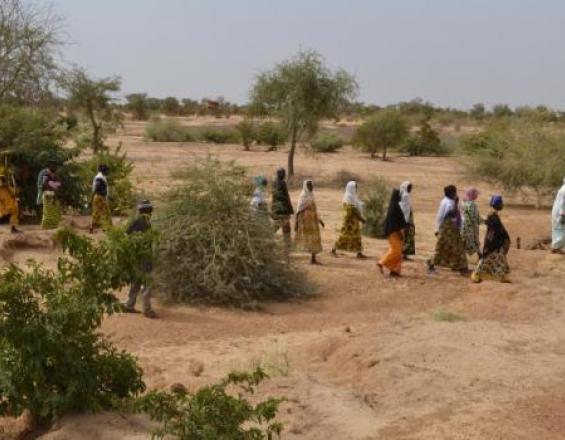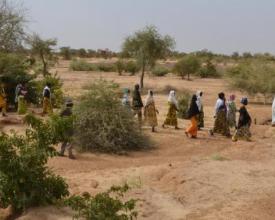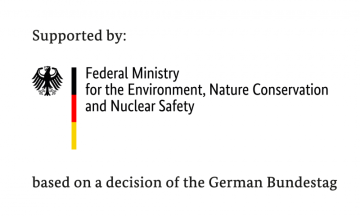
Spreading and sharing knowledge on organic farming in Burkina Faso

Burkina Faso is experiencing climate change related impacts like droughts, floods, strong winds and high temperatures, which are combined with pressure put on ecosystems by land use change and exploitation of forest resources. This is leading to land degradation, and therefore loss of soil fertility, productivity, income, and food security. Using participatory analysis of causes and effects of climate hazards, commuities chose reforestation, organic gardening and riverbank protection to address these challenges. Training programmes and exchange trips were used to build capacity among project beneficiaries. This solution is published as part of the project on Ecosystem-based approaches to adaptation: strengthening the evidence and informing policy.
Impacts
This solution has improved water provision for people and animals through the use of climate-smart infrastructure farming techniques, such as stone bunds (reducing run-off and water erosion), zaï (farming using pit-digging for catching water) and half-moons (pit-digging for concentrating water in particular places for crop nourishment). Income has increased from greater garden productivity along riverbanks, and from the implementation of ‘cash for work’ which distributes payment to those adopting the climate-smart farming techniques. Community nurseries produced over 40,000 seedlings for home gardens and farms, facilitating reforestation. Reforestation protects croplands against wind and water erosion, helps groundwater recharge, and protects riverbanks against flooding. Establishing 56 manure pits supported organic gardening. Farmer training on the different techniques and how they help the environment has contributed to positive behavioural change, and an increased capacity for responding to climate change. Training included exchange tours among and between project beneficiaries in Burkina Faso and Senegal. Target communities reported that vulnerability was reduced especially for those people who depend the most on ecosystem goods and services – namely women and the vey poorest households.




